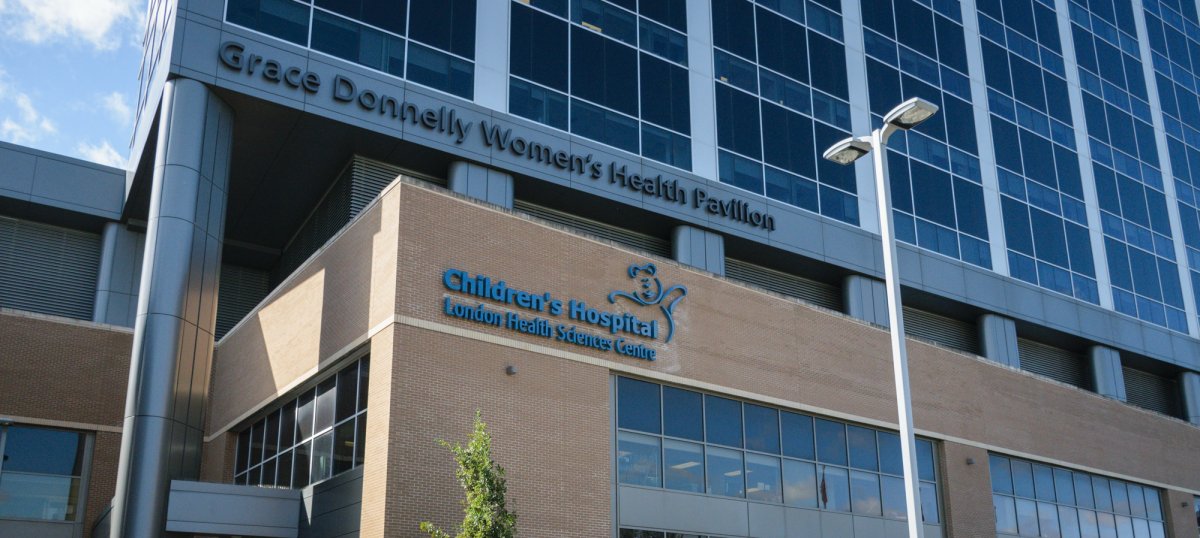A London man is looking for answers after his wife spent more than a hundred hours waiting for mental health care at London Health Sciences Centre (LHSC).

Dawn Warren has been be dealing with postpartum depression since the birth of her first son in 2004.
Her husband, Dave Warren, says they’ve had their fair share of challenges trying to get help for his wife.
“This time, she swallowed a bottle of pills, I called the paramedics and we got her to the hospital fairly quickly, and we waited a few hours waiting to be processed,” said Warren.
“Then she did get a bed in the emergency room area where you have a little bit of privacy with a curtain around her. Then she got moved to the overflow area just in a hallway, and she sat on a bed there for about 120 hours.”
He says the conditions were not ideal for someone going through mental health problems.
“People running in and out of the radiology department, guards, nurses doctors, it’s hectic, people are yelling, it’s chaos. It was not the ideal place to be, and for her to be there for over 100 hours.”
“For somebody who is anxious and depressed, what they need most of all is a nice quite place to rest and recover.”
New Democrat MPP for London West Peggy Sattler has been critical of how mental health patients are treated in emergency rooms.
She tells 980 CFPL that people deserve better care.
“This is why people pay taxes, this is why we support government services, because we know that public funding should ensure that the health care services that people need are there when people need them.”
In October, the provincial government announced $1 million for transitional health care in London. They said the funding would help reduce emergency room wait times.

Get breaking National news
The Canadian Mental Health Association (CMHA) partnered with LHSC on the project. CMHA Middlesex CEO Beth Mitchell says the problem wont be solved overnight.
“The money was to look at transitional beds in the community, to provide a bridge for people have been in the hospital and were close to be ready to move back into the community, where people can move in for 15 to 30 days before they are ready to move back home,” said Mitchell, who adds that they’ve been hearing some positive feedback from patients.
“It’s still early, but we were able to show some good results, and it allowed us to work closely with the hospital teams to think more creatively about how we can help people move from the hospital.”
Mitchell says just adding more beds wont solve the problem, and any solution will need to be a system solution.
Sattler believes the problem runs much deeper.
“Adding beds are not the solution if there aren’t the community based services that people need to support their recovery after they are discharged from the hospital,” said Sattler.
“What happens when those services aren’t available, people go back into crisis and end up back in the ER, it’s a vicious cycle.”
Premier Kathleen Wynne acknowledged that the Warrens experience is unacceptable, when asked why hospital overcrowding continues to be an issue in Ontario.
“My heart goes out to that family,” she said. “It’s only in the last decade or so that we, as a society, have realized that the mental health challenge is what it is.”
Wynne said there is money in the budget to increase mental health supports in the community, in the education system, and in hospitals.
“When I say mental health supports, I mean the whole spectrum. So I mean early identification right, so one of the things in our budget is that we’re increasing the funding to schools so that they will be able to have mental health workers in their schools,” Wynne explained.
“I don’t just mean treatment, I mean prevention, I mean identification, and also navigation because there are issues of … families not being able to find supports for their kids because they don’t know where the services are.”
In a statement to 980 CFPL, LHSC vice-president of mental health and emergency services Julie Trpkovski says they have been experiencing significant pressures on their mental health care capacity.
“Our current volume and wait-time realities mean that we have admitted patients in unconventional surge spaces and I want to acknowledge the hardship this situation causes for the patients and families impacted and apologize for any inconvenience and stress that has resulted,” said Trpkovski.
“The recent funding to support additional mental health beds at LHSC was welcome news, and work is ongoing to build our capacity and improve access for mental health patients, including recruiting five additional psychiatrists, as well as other resources for nursing, social work, occupational therapy and the related support systems.”
Warren says there are clear gaps in the system, but wonders why more isn’t been done to fix the issue.
“I have doctor friends, and I have nurse friends, and they all say that this is unacceptable and it should be this way. Don’t they have a moral, legal and ethical obligation to the patients to ensure they get the best help?”
“If something is systemically wrong, shouldn’t they be the one leading the charge? Why is it me?”
In a statement to 980 CFPL, Minister for Health and Long Term Care Helena Jaczek says the provincial government is committed to improving access to mental health supports.
“This past Fall, recognizing a need for increased mental health capacity for those most in need, Ontario provided London Health Sciences Centre with $1,741,600 in base funding to open an additional 24 mental health beds. This amount was increased and made permanent starting this year, in 2018-19, for a total of $5.5 million in new annual funding for London Health Sciences Centre to improve access to care for those with acute mental health needs.”
Mitchell says the CMHA Middlesex has a crisis service that’s open 24 hours a day, seven days a week. She says there is also a crisis line people can call, and a mobile team that can provide support in person.
With files from 980 CFPL’s Craig Needles & Liny Lamberink.












Comments